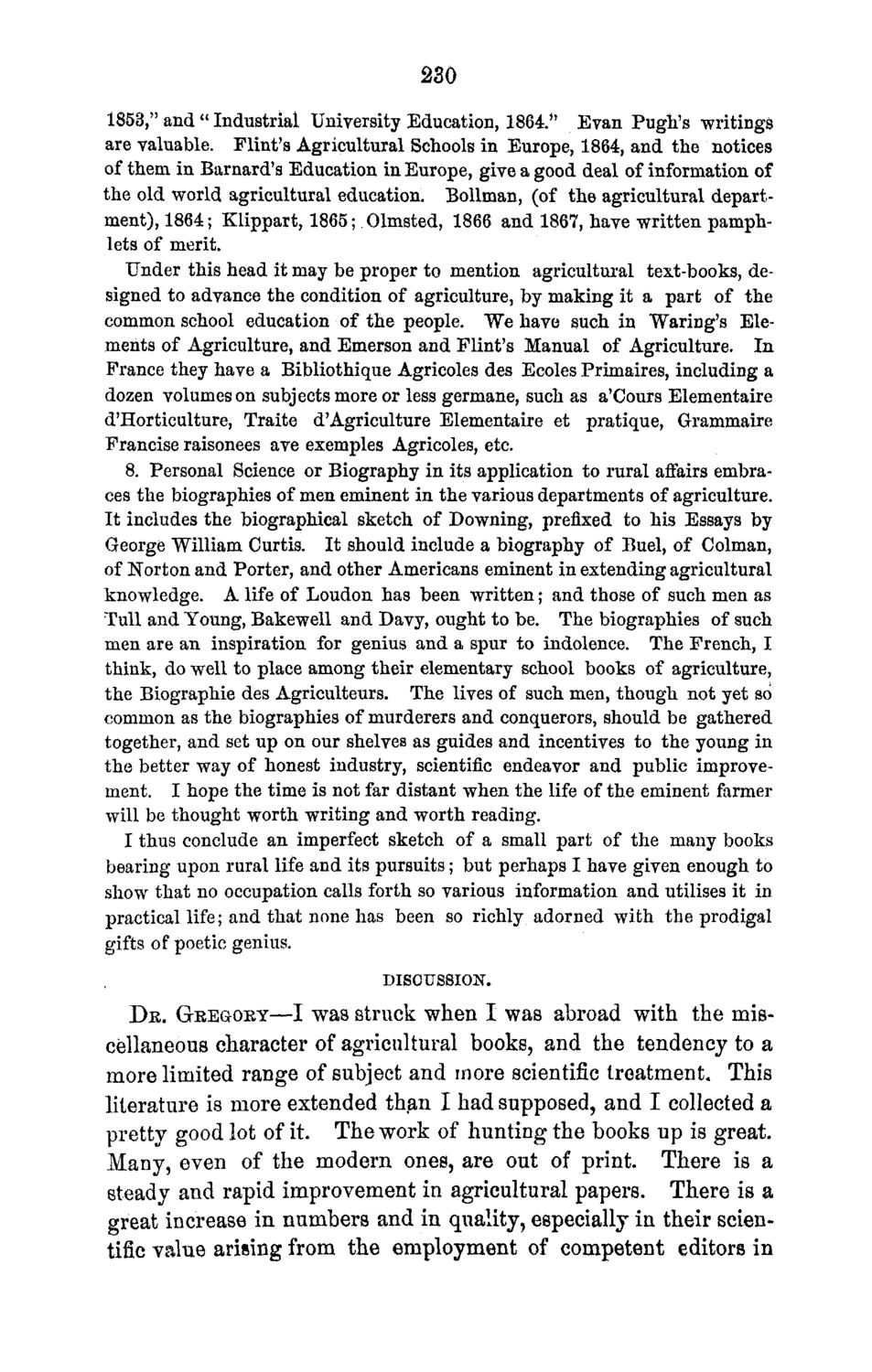| |
| |
Caption: Board of Trustees Minutes - 1870
This is a reduced-resolution page image for fast online browsing.

EXTRACTED TEXT FROM PAGE:
230 1853," and " Industrial University Education, 1864*' Evan Pugh's writings are valuable. Flint's Agricultural Schools in Europe, 1864, and the notices of them in Barnard's Education in Europe, give a good deal of information of the old world agricultural education. Bollman, (of the agricultural department), 1864; Klippart, 1865; Olmsted, 1866 and 1867, have written pamphlets of merit. Under this head it may be proper to mention agricultural text-books, designed to advance the condition of agriculture, by making it a part of the common school education of the people. We have such in Waring's Elements of Agriculture, and Emerson and Flint's Manual of Agriculture. In France they have a Bibliothique Agricoles des Ecoles Primaires, including a dozen volumes on subjects more or less germane, such as a'Cours Elementaire d'Horticulture, Traite d'Agriculture Elementaire et pratique, Grammaire Francise raisonees ave exemples Agricoles, etc. 8. Personal Science or Biography in its application to rural affairs embraces the biographies of men eminent in the various departments of agriculture. It includes the biographical sketch of Downing, prefixed to his Essays by George William Curtis. It should include a biography of Buel, of Colman, of Norton and Porter, and other Americans eminent in extending agricultural knowledge. A life of Loudon has been written; and those of such men as Tull and Young, Bakewell and Davy, ought to be. The biographies of such men are an inspiration for genius and a spur to indolence. The French, I think, do well to place among their elementary school books of agriculture, the Biographie des Agriculteurs. The lives of such men, though not yet so common as the biographies of murderers and conquerors, should be gathered together, and set up on our shelves as guides and incentives to the young in the better way of honest industry, scientific endeavor and public improvement. I hope the time is not far distant when the life of the eminent farmer will be thought worth writing and worth reading. I thus conclude an imperfect sketch of a small part of the many books bearing upon rural life and its pursuits; but perhaps I have given enough to show that no occupation calls forth so various information and utilises it in practical life; and that none has been so richly adorned with the prodigal gifts of poetic genius. DISCUSSION. DR. GREGORY—I was struck when I was abroad with the miscellaneous character of agricultural books, and the tendency to a more limited range of subject and more scientific treatment. This literature is more extended than I had supposed, and I collected a pretty good lot of it. The work of hunting the books up is great. Many, even of the modern ones, are out of print. There is a steady and rapid improvement in agricultural papers. There is a great increase in numbers and in quality, especially in their scientific value arising from the employment of competent editors in
| |